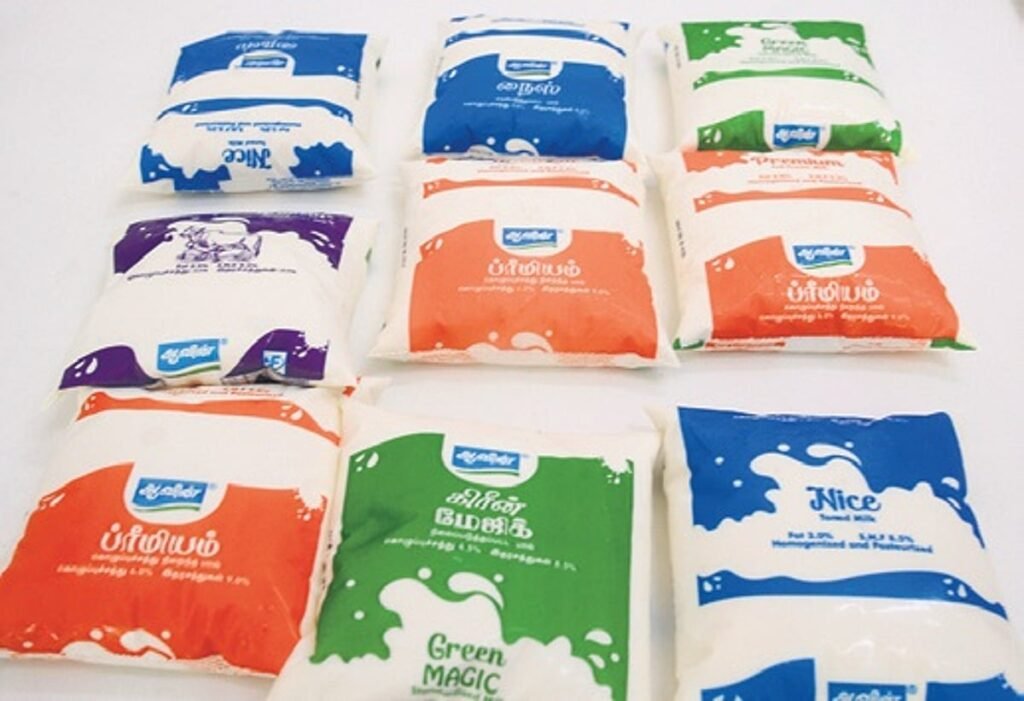Incentive Delays, Heat Stress, and Farmer Frustration: Tamil Nadu’s Dairy Sector at a Crossroads
Amid rising temperatures and growing discontent among milk suppliers, Tamil Nadu’s flagship dairy cooperative Aavin is facing mounting pressure. Delays in incentive payments worth ₹140 crore have triggered a steady decline in milk procurement across major districts, even as the cooperative expands operations beyond the state.
Aavin’s ₹3-per-litre milk procurement incentive, introduced in December 2023 to counter a severe milk shortage, had briefly turned the tide — pushing procurement up from 26.6 lakh litres in January 2024 to 35 lakh litres by October 2024. However, dues from July to October 2024 remain unpaid in full, despite a government order in March 2025 to release the funds.
Now, district milk unions in Salem, Tiruchy, and Madurai report daily procurement drops of 40,000 to 60,000 litres, while Vellore and Namakkal have seen reductions of 10,000 to 15,000 litres each.
“Due to delayed payments, many farmers have shifted to private dairies offering slightly higher prices,” said M.G. Rajendran, of the Tamil Nadu Milk Producers’ Welfare Association, adding that even private dairies have seen a minor slump in procurement since March.
Currently, Aavin pays ₹38 per litre for cow milk and ₹47 for buffalo milk, inclusive of the ₹3 incentive. Private dairies offer slightly more — ₹40 per litre for cow milk — although their consumer-facing milk prices are ₹8–₹16 higher per litre compared to Aavin.
Heatwave Adds to Production Woes
Compounding the crisis is Tamil Nadu’s early onset of summer. Much of the state’s milk supply relies on crossbred and exotic cattle like Jersey and Holstein Friesian, which are known for higher yields but lower heat tolerance.
“Crossbred cows struggle in high temperatures due to their larger body size and metabolic demands,” a veterinarian from the Animal Husbandry Department noted. “Their appetite drops in the heat, which directly affects milk yield.”
While native breeds are more heat-resilient, they produce only 2–3 litres per day, compared to 6–8 litres from crossbred cows — a major reason why the dairy industry depends heavily on the latter.
Procurement Dips, Expansion Plans, and Price Hike in Sight
According to official data:
-
February 2025 daily procurement stood at 35–36 lakh litres, including 3.5 lakh litres for local sales.
-
Current procurement has dipped to 31 lakh litres, affecting supply chains and retail availability.
To manage demand, Aavin has reportedly reduced the surplus milk volume provided in sachets — a move that has not gone unnoticed by consumers. Additionally, industry insiders suggest that a milk price hike may be on the horizon, as procurement drops and input costs rise.
Interestingly, Aavin has begun expanding operations in northern India, marking a new strategic push outside Tamil Nadu. However, these growing ambitions risk being overshadowed by local discontent if supplier relationships are not repaired.
What’s Next for Tamil Nadu’s Dairy Sector?
As peak summer approaches and the backlog of dues remains unresolved, the state’s dairy ecosystem stands at a delicate juncture. If incentives are not cleared swiftly, and support mechanisms for farmers aren’t reinforced, private sector players may continue to absorb Aavin’s supply base, further challenging the cooperative’s dominance.
For Aavin — long considered a model for state-run dairy success — this moment calls for not just financial resolution, but a renewed commitment to supplier trust, operational transparency, and climate-resilient planning.
